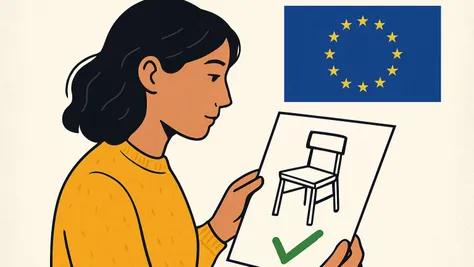As of 1 June 2023, the Unitary Patent (UP) system will become effective. With it, a brand-new institution – the Unified Patent Court (UPC) – will be established. As a result, the mechanism will introduce the biggest change in the area of patents in decades and will affect all European patents, also those already in place. Are you ready?
The Czech Republic has not yet ratified the necessary documents. Thus, the key changes will not yet apply in the Czech Republic. Nevertheless, the UP system will also have a significant impact on the foreign patent portfolios of Czech entities. Existing European patents will be subject to the jurisdiction of the UPC with the exception of opt-outs, i.e., where patent application or patent is excluded from the exclusive jurisdiction of the UPC.
Since the UPC is still a big unknown for patent owners, it is high time to consider whether to let the UPC decide disputes or to keep the current system of national decision-making and thus opt out. It is possible to opt out without any restrictions until 31 May 2023, but even after that, an opt-out will also be possible except for proceedings already opened before the UPC.
When and how will it be possible to opt out? And what are the other changes that need to be taken into account?
Before the unitary patent
Until now, the term European patent was used to provide a system of protection of an intangible asset by means of individual national patents obtained on the basis of a single European application. Under this regime, after the patent has been granted, it had to be validated in each country separately. This included submission of translations, payment of maintenance fees, etc.
The current set-up could lead to paradoxical situations, where, for example, the Polish Office revoked a patent granted on the basis of an identical European application, while the Czech Office kept the patent valid. Although filed jointly, the patents were completely independent of each other in accordance with the principle of territoriality of industrial rights protection. It was up to the individual national bodies to make a decision on their validity. And the approaches often differed from one to another.
If you wanted to enforce your patent rights against your competitors in court, you had to file lawsuits in each country for each patent separately.
Simply put, the UPC system will enable transferring the decision-making on these disputes to the UPC. Although the idea of a single proceeding before the UPC may seem more appealing at first sight, many foreign owners of European patents may still prefer the old model because it is tried and tested. Opt-out will enable them to proceed based on the current system.
Changes with the unitary patent and the Unified Patent Court
Until now, the system of the uniform European patent has been used only halfway. After filing a single European application (stage 1), it was possible to obtain separate national patents in the participating countries (stage 2).
The unitary patent specifically changes stage 2. Once a European application has been filed, it will be possible to obtain a unitary patent valid in all participating countries. Thus, no additional national validations or translations will be needed for each country where protection is sought. Single application – single patent for the whole territory.
The protection of unitary patents will be supervised by a new body – the Unified Patent Court. It will have exclusive jurisdiction to adopt binding decisions on whether patent rights have been infringed or whether, for example, a unitary patent should be revoked, with effects for the entire territory in which the unitary patent enjoys protection. This is similar to the well-known system applied to EU trade marks and Community designs, which are decided by a single authority with effect throughout the EU.
Will every new European patent be a unitary patent?
No, it will not. The European patent application stage remains unchanged. It will still be possible to file a European patent application. Once a European patent is granted, the applicant can choose whether to apply for a unitary patent or to obtain a set of individual national patents.
We recommend that you carefully consider which strategy suits you best, which we will be happy to help you with.
Czechia and the unitary patent and Unified Patent Court
The Czech Republic has not yet ratified the UPC Agreement. For this reason, the UPC will not have jurisdiction to decide on the protection of patent rights in the Czech Republic. Similarly, unitary patents will not confer rights onto their owner in the Czech Republic.
Czech entities can still apply for patent protection abroad. This includes protection through a unitary patent in countries where the UP system will be effective. Therefore, the changes brought about by the unitary patent and the Unified Patent Court may also directly affect your patent strategy in relation to abroad.
The launch of the UPC will have an impact on your existing European patents abroad. They are still governed by the old regime – each country assesses their validity and violations of the rights associated with them, if any, through its own courts and authorities. However, your existing European patents in countries that have already ratified the agreements will now be directly subject to the jurisdiction of the UPC. The Unified Patent Court will make decisions in patent litigations and will decide on the revocation of individual patents unless you decide to opt out.
Thus, if a Czech owner of European patents keeps the jurisdiction with the UPC to decide on patent infringement or revocation disputes for countries that have already ratified the agreements, it can gain the advantage of having a single proceeding to decide that someone else is infringing its patent or that the patent should remain in force for all of these countries, thus eliminating the need to potentially conduct parallel proceedings in many individual countries.
On the other hand, this can also bring disadvantages: in such single proceeding, a decision may be taken to revoke the applicant’s patent for all countries that have already ratified the agreements. The current decision-making system may therefore be preferable for defence against other persons’ claims.
Which countries are affected from 1 June 2023?
The states subject to the new system on its effective date will be: Austria, Belgium, Bulgaria, Denmark, Estonia, Finland, France, Germany, Italy, Latvia, Lithuania, Luxembourg, Malta, the Netherlands, Portugal, Slovenia and Sweden.
Therefore, if you are interested in applying for European patents for these countries, you will be able to apply directly for a UP with all the benefits it brings.
In relation to the remaining EU Member States, it will be possible to use a combination of the new and old regimes, i.e., to apply for a UP for protection in the participating countries while obtaining protection for non-participating countries (such as the Czech Republic or Slovakia) by means of the “old” European patent.
Opt-out and why?
In countries where the unitary patent system will already be in force from June, the previously granted European patents will automatically be subject to the jurisdiction of the UPC.
A number of patent owners are now opting out in an attempt to avoid the new regime and continue to be governed by the old system to which they are accustomed.
An opt-out is a notification to the UPC that European patents are not to fall under the jurisdiction of the Unified Patent Court.
There are a number of reasons for an opt-out. The key ones include, for example:
- You will not lose patent protection throughout the territory in a single decision. In the case of an opt-out, the UPC will not have the power to revoke patent protection in all participating countries in a single decision. Your competitors challenging the patent will still have to seek revocation of individual patents before national authorities.
- Opt-out can be revoked. If you decide that you do not want to sue your competitor in each state, you can revoke the opt-out and initiate litigation before the UPC. An opt-out can only be revoked once.
- The UPC is a new judicial body. This means that it does not have any decision-making practice or settled case-law yet. Its decision-making can be erratic in a number of its cases in the beginning. Patent owners may therefore prefer the certainty of the “old” system to the new, unknown regime in many cases.
- Litigation before the UPC can be very costly. The basic fee for initiating litigation before the UPC for patent infringement proceedings is € 11,000, plus an additional percentage of the value of the particular litigation (up to € 325,000 if the value of the litigation exceeds € 50,000,000).
- There is no administrative fee charged for the opt-out. Only the cost of the work to secure the opt-out notification.
It should also be noted that the opt-out will also have effects for Supplementary Protection Certificates (SPCs).
When to opt-out?
It is possible to opt out now. It is appropriate to accede to it by 31 May 2023. As of 1 June 2023, the Unified Patent Court will start operation.
It will also be possible to opt out in the next 7 years. However, if in the meantime, proceedings on existing European patents are initiated before the UPC, it will not be possible to opt out from the jurisdiction of the UPC in pending cases.
The Unified Patent Court and the unitary patent bring new opportunities
UP brings to patent owners and new applicants new ways to protect and enforce their rights. There is, however, no single optimum solution for all. The most appropriate approach may differ not only for various sectors but also for individual patents.
Thus, you will need to consider whether an opt-out is suitable for you. We will be happy to help and advise you in this matter.
Needless to say, we will also arrange the appropriate opt-out and notification to the Unified Patent Court for you if you choose to pursue this course for your European patents.











